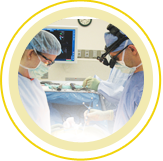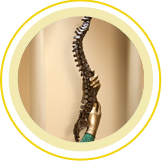When most people think of scoliosis, they associate it with children and teens. However, scoliosis can also develop or progress during adulthood. If you’re an adult living with scoliosis, it’s important to understand the condition and explore treatment options beyond bracing.
News & Events
- Arthritis
- Back Pain
- Back Surgery
- Collapsed Disc
- Degenerative Disc Disease
- Fibromyalgia
- Herniated Disc
- Max Cohen MD
- Neck Pain
- News
- Osteoporosis
- Physical Therapy
- Pinched Nerve
- Published Articles
- Ruben Torrealba MD
- Sciatica
- Scoliosis
- Spinal Cord Compression
- Spinal Fusion
- Spinal Stenosis
- Spine Injuries
- Spine Injury Prevention
- Spine Tips/FAQS
- Success Stories
- The Surgeon's Perspective
- Whiplash
How Osteoporosis Impacts Spine Health and How to Prevent It
Osteoporosis can significantly affect spine health, especially as we age. It’s important to understand how this condition leads to spine complications such as vertebral fractures, posture changes, and chronic pain. By recognizing the risks and preventive measures, you can help your patients maintain better spine health throughout their lives.
How Obesity Affects Your Spine and Ways to Combat It
Noticing some discomfort in your lower back recently? Finding it a bit more challenging to get up from a chair or bend over to pick something up? It might be a good time to check in with your weight, as those extra pounds can sometimes add up without us realizing. Taking proactive steps to address obesity can help support your spine and overall well-being.
When Should You See a Doctor for Back Spasms?
Back spasms can strike unexpectedly, often with intense pain that can make even the simplest movements feel impossible. While they are common, understanding the causes and knowing when to seek medical help is crucial for effective treatment. Let’s explore the likely causes of back spasms and when it’s time to reach out to a spine specialist for further evaluation.
Is Adult Scoliosis the Cause of Your Back Pain?
Back pain is one of the most common complaints, and the causes can range from muscle strain to more complex conditions like scoliosis. While scoliosis is often associated with children or teenagers, adults can also develop this condition, leading to persistent back pain and other troubling symptoms. So, could your back pain be related to adult scoliosis?
Does a Herniated Disc Require Surgery?
While the condition sounds serious—and often causes pain, numbness, or weakness—surgery isn’t always the answer. Sometimes referred to as a bulging, slipped, ruptured, or protruding disc, every year more than three million Americans suffer with a herniated disc. But the question remains: does everyone with a herniated disc need surgery? Let’s explore the options.
Back Pain After Surgery? Here’s What To Know
We live in a world of instant gratification. After going through back surgery, most patients expect their back pain to disappear after surgery. They may think they will wake up, and the pain will be gone. In a lot of cases, some back pain is normal in the first 72 hours post-surgery, so don’t panic. Let us describe what is normal and what is not.
How to Find Sacroiliac (SI) Joint Pain Relief
How many times have you said this out loud or thought about it? It might have been pain from your sacroiliac joint in your lower back. If so, keep reading to discover how to find sacroiliac (SI) joint pain relief.
Understanding the Difference Between Spinal Stenosis & Sciatica
Let’s start with a quiz.
Question 1: Do your symptoms go down one leg or both?
Question 2: How far down do the symptoms go?
Question 3: Do you feel better when you sit or stand?
Question 4: Does walking bring on your symptoms?
How you answered these questions will initially indicate whether you could have spinal stenosis or sciatica and will help with understanding the difference between spinal stenosis and sciatica.
How Long Is the Recovery for a Spinal Fusion?
Spinal fusion surgery is performed to stabilize the spine. It is major surgery with general anesthesia. It reinforces the back by linking two vertebrae together. Many times it is a last resort after other treatments have been tried and failed at providing relief. Let’s learn more about why you might need this surgery, and how long is the recovery for a spinal fusion? Continue reading



